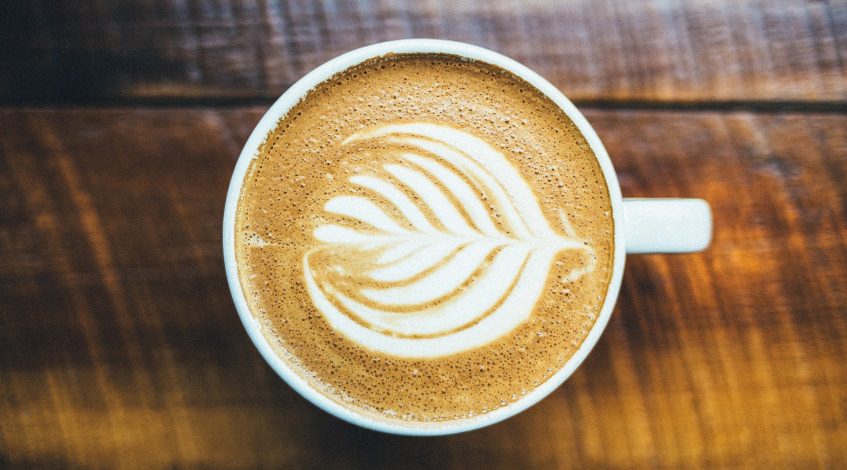You have probably spent lots of time at home during the COVID-19 pandemic. This has led to many people purchasing coffee machines to make fresh coffee every day. You may have not perfected coffee making at home just yet. In this blog, we’ll be going through tips on brewing coffee at home.
Use Filtered Water
Tap water will affect the taste. Any minerals within it (common examples are limescale and chlorine) can alter the flavour.
Hard water leads to under-extracted, weak coffee. The higher mineral content can also lead to build up within your machine, such as limescale deposits. Not many people know that using heavily filtered coffee or distilled water can also damage your equipment. The lack of ions and minerals will force the water to leach minerals from the metal components within the machine, affecting performance over time.
The balance needs to be just right! If you wish you can install a filter at your home. But for the casual at-home coffee drinker lightly filtered water from a jug will suffice.


Use Fresh Coffee
Ideally start with freshly-roasted, whole bean coffee. Failing that a more pragmatic option would be to buy whole bean coffee and grind it at home. If you take this option, you should grind only what you need. You should keep the rest of your coffee as fresh as possible by storing it correctly. A vacuum-sealed container with a one-way valve is recommended by many. Ideally, you should store it in a dark container and away from sunlight.
Some people store their coffee in a freezer. We would advise against this because there is a chance that it will absorb moisture, which can affect its taste.
You should grind your coffee immediately before brewing for maximum flavour. Some experts say coffee begins to lose its flavour within 30 minutes of being ground.
A burr or mill grinder is best because the coffee is ground to a consistent size.
A blade grinder is less preferable because some coffee will be ground more finely than the rest.
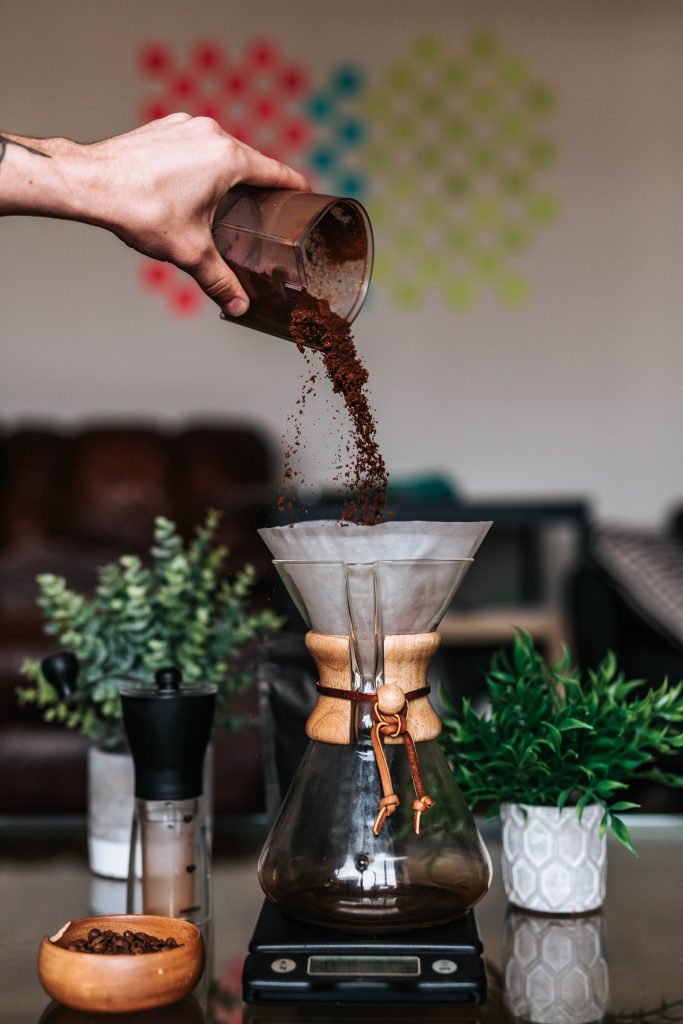

How Much Coffee Should You Use?
The base ratio for black coffee is 60g coffee per litre of water. That’s 15g coffee for a 250ml cup. If it tastes too weak, either grind the beans more finely or add a bit more coffee (especially if you are adding milk). If it tastes too strong, your grind may be too fine.
For an espresso or other strong coffee, you need two to three times the weight of hot water to coffee. So, if you use 15g of coffee per person, you will use between 30–45g of hot water.
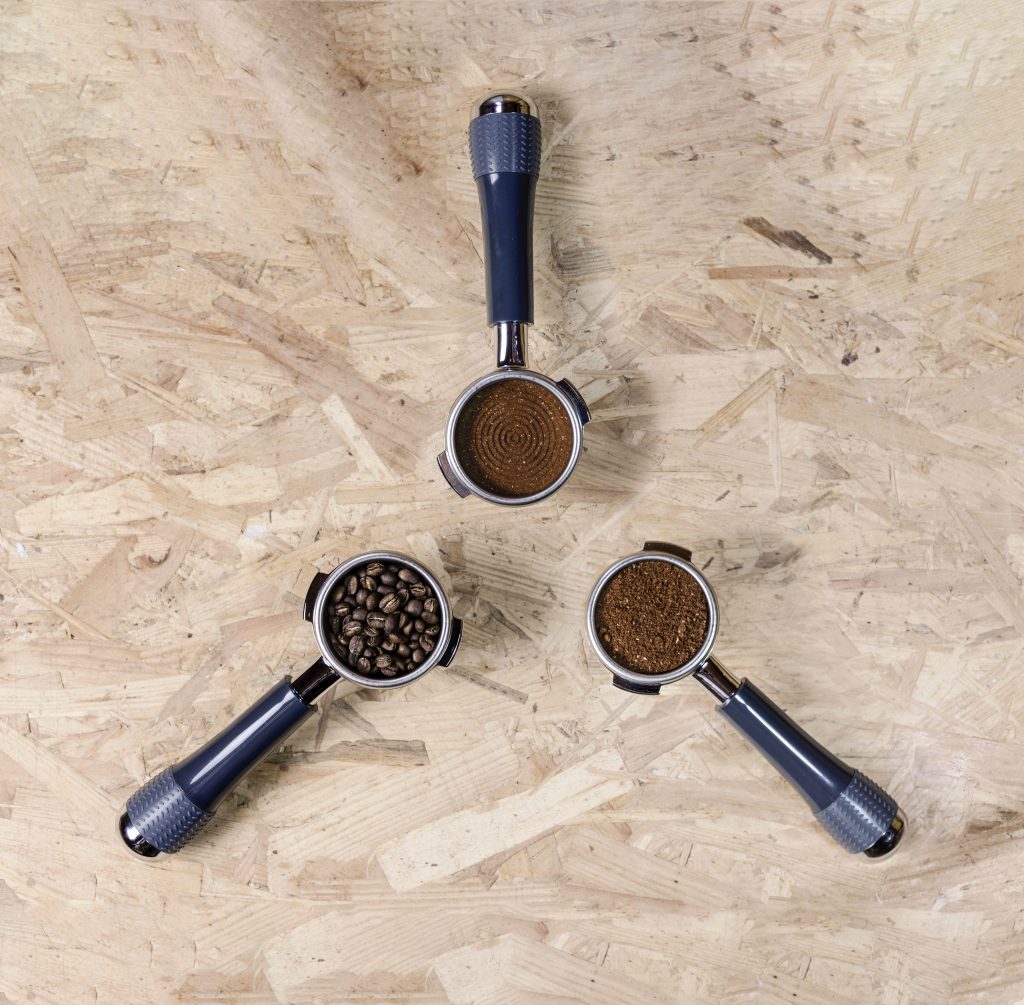

Use the Right Grind for your Brewing Method
The device you use will have an impact on the strength of your coffee. You should choose the one that meets your taste preferences. Grind can affect the strength of flavour and the crema of your espresso. Espresso machines generally needed a finer grind of coffee than a cafetière or filter coffee machine.
To course a grind can cause under-extraction, leading to a sour or watery espresso, while too fine a grind can lead to a bitter, grainy coffee. You should also avoid using ground coffee that is old or has been open for a while, as this can also affect the quality and taste of your coffee.
Make your Coffee By Weight Not Sight!
Brewing coffee at home is all about eliminating variables. One way to do that is to use the same amount of coffee per volume of water every time you brew. Using a digital scale to measure water and coffee takes just a second and allows you to better compare how much coffee and water is used each time.
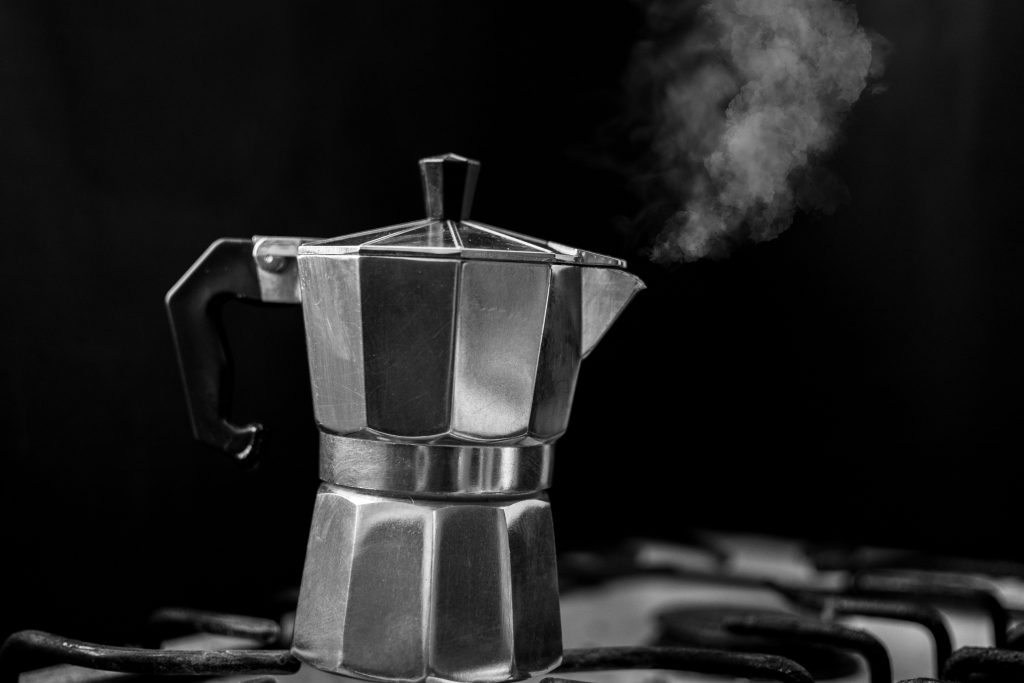

The Right Brewing Time
The amount of time that the water is in contact with the coffee grounds is another important flavour factor.
In a drip system, the contact time should be approximately 5 minutes. If you are making your coffee using a French Press, the contact time should be 2-4 minutes. Espresso has an especially brief brew time — the coffee is in contact with the water for only 20-30 seconds. Cold-brew, on the other hand, should steep overnight (about 12 hours).
Experiment with the contact time until you get the right balance for your taste.
Clean Your Machine Frequently
Rinse with clear, hot water (or wipe down thoroughly), and dry with an absorbent towel. It is important to check that no grounds have been left to collect and that there’s no build-up of coffee oil which will make your coffee taste bitter and rancid.
If you have a steam pipe or milk system you should make sure you spend a little extra time cleaning them after use. Most coffee machines advise cleaning and purging the pipe or milk system every time you use them, to avoid a milky residue or build-up.
If you do not clean your milk system, it will affect your milk and drink flavour and could lead to equipment breakdown.
At the very least, make sure you have a clean cloth handy to give your machine’s pipe a quick wipe and run some steam through it.
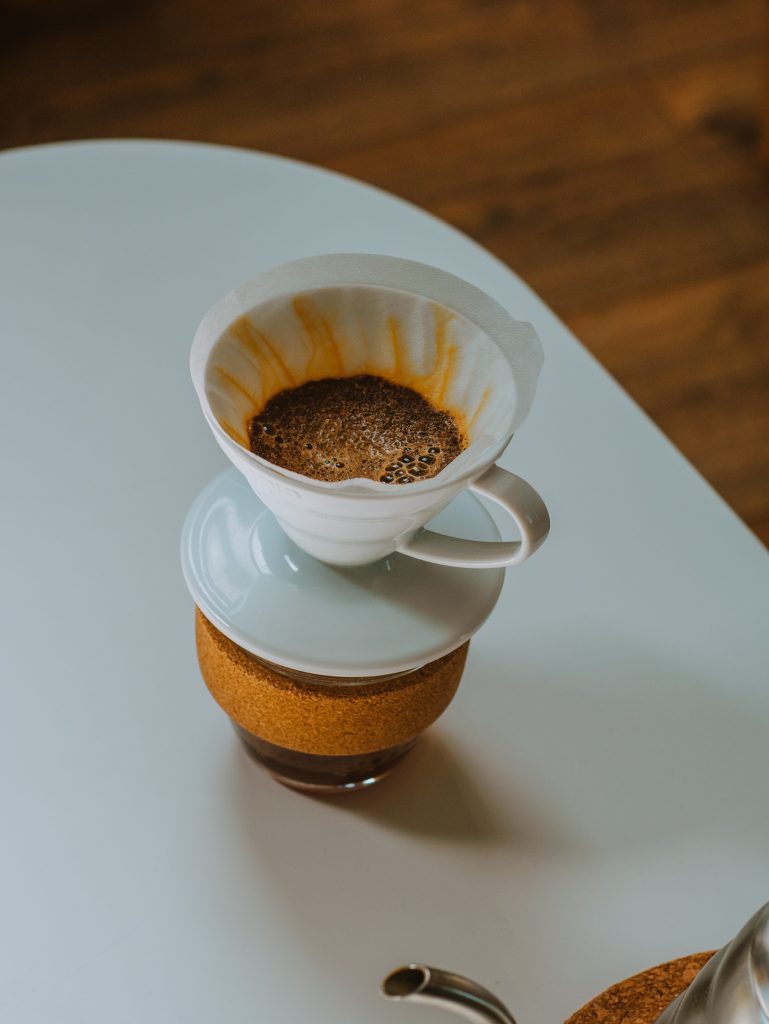

Which Brewing Method is Right for You?
Best methods for black coffee
The cafetière is the most versatile home-brewing method for black coffee and gives a good flavour.
You can make cold coffee in a cafetière: place the grinds and cold water in the jug and leave it to brew in the fridge overnight.
Paper Filter enhance the flavour in lighter roasted coffee. Brewing coffee at home is easy. You pour hot water over coffee grinds, which sit in a filter over a jug or mug. Gravity does the hard work and the coffee drips out of the bottom of the filter.
Best methods for espresso and milky coffee
Most coffee consumed on the high street is espresso-based using commercial quality coffee equipment. As such it is very difficult to replicate this at home. You can try to create something similar at home using an Aeropress.
A metal filter may produce a more realistic imitation of espresso, as some of the micro-grinds will pass through, creating a rich brew. A traditional stovetop espresso maker is also an option.
The quest for the perfect cup of coffee is likely to take a lifetime.
Contact Espresso @ Home for Home Coffee Machine Repairs
If are having trouble with repairing your coffee machine, you can bring it to us at Espresso @ Home and will be sure to give you the best service! Get in touch with one of our engineers using our contact form or give us a call.

